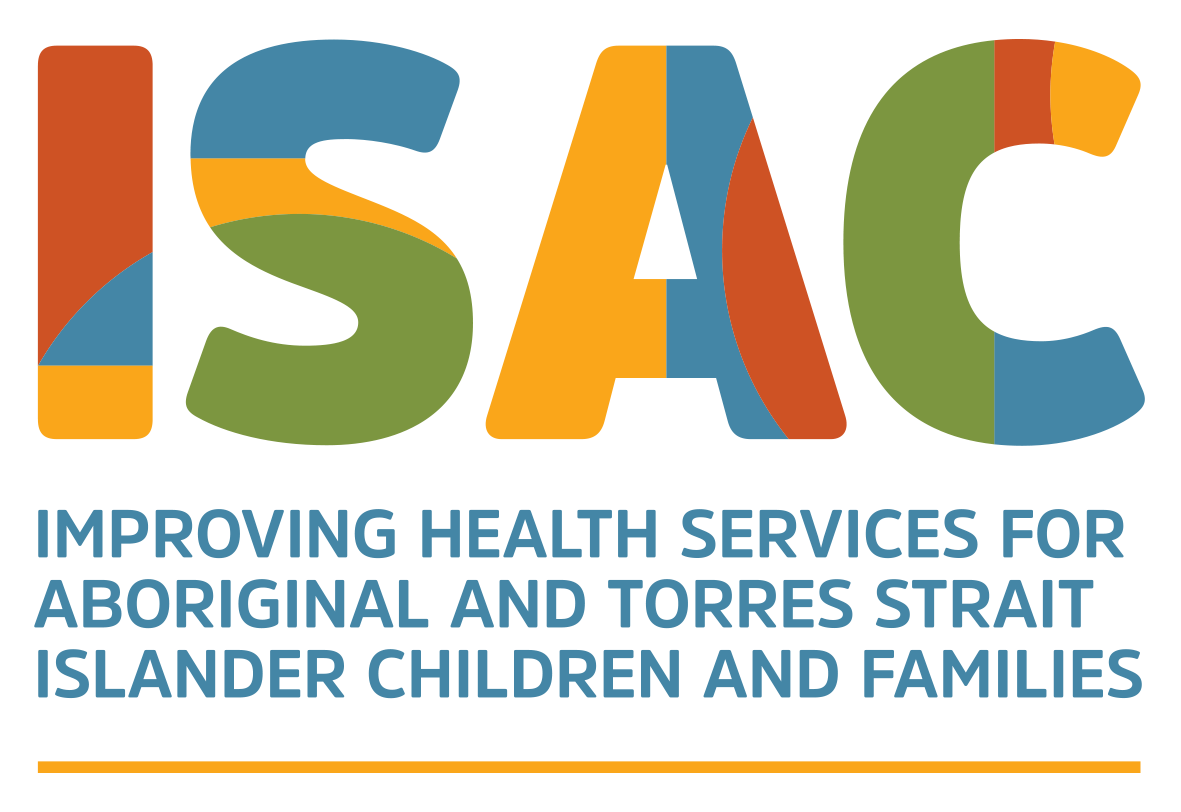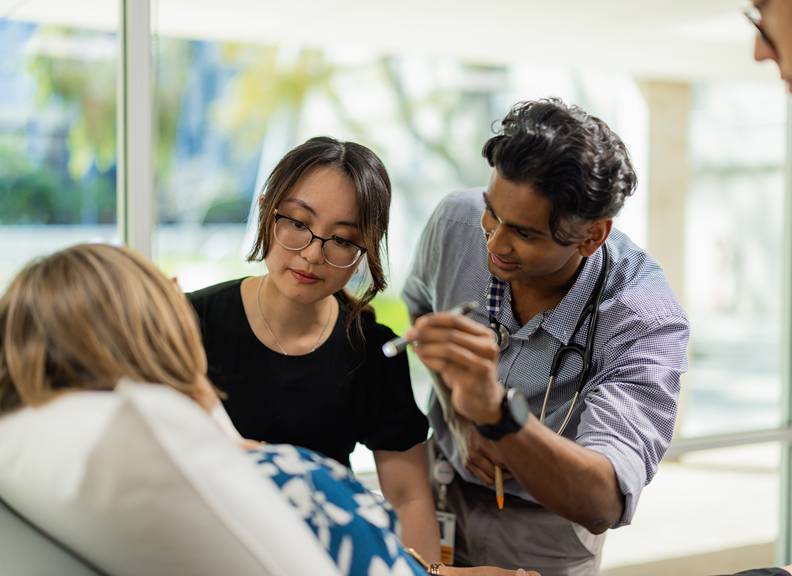FACILITY
Centre for Improving Health Services for Aboriginal and Torres Strait Islander Children and Families (ISAC)
Delivering effective health services to vulnerable Aboriginal and Torres Strait Islander children
The Centre for Improving Health Services for Aboriginal and Torres Strait Islander Children and Families (ISAC) focuses on issues of delivering health services to Aboriginal and Torres Strait Islander children and their families. Our expertise is in improving health services for disadvantaged communities, with strengths in health service evaluation, quality improvement, evidence synthesis, and epidemiology for the vulnerable and disadvantaged.
ISAC brings together national and international researchers from government, non-government and research organisations who are uniquely placed in leadership positions in international and national academic and service delivery institutions.
The vision of ISAC is to improve health and developmental outcomes of Aboriginal and Torres Strait Islander children.
We conduct research and evaluation on the access and quality of health services for Aboriginal and Torres Strait Islander children, and provide new knowledge about the health services they should receive.
We work across primary, secondary and tertiary-level health services with a specific focus on improving pathways between them.
Here at ISAC, we aim to add to the evidence about the efficacy and effectiveness of Australian child health service models in improving access and quality of care for Aboriginal children; and to rigorously test new health service models that could improve Aboriginal child health outcomes and support their families.
We do this because information on the efficacy of new models, especially family-centred approaches and new methods of quality improvement, ambulatory and outreach services, and access for the hardest to reach and disadvantaged Aboriginal children, is lacking.
We commenced ISAC with the knowledge that despite Australia’s capacity, it is of major concern that we are unable to deliver effective health services to many vulnerable Aboriginal and Torres Strait Islander children. Australian Aboriginal children and their families still carry an unacceptably high burden of ill health. Here at ISAC, we use a thematically driven structure: generate new knowledge to improve child health outcomes; ensure translation into policy and practice; build capacity; and foster collaboration.
Research areas
Effectiveness of current strategies
Rigorous quantitative examination of the effectiveness of current strategies to improve access and quality of health services for Aboriginal children and their health outcomes.
- Utilise rigorous population-based data linkage techniques to assess the effectiveness of current strategies to improve access and their impact on child health outcomes.
- Analyse high-quality primary care audit data to assess the effectiveness of past and current strategies to improve health service quality on child health outcomes.
- Analyse population-based routinely collected data from child health prevention programs to understand current gaps in data quality.
- Specifically assess differentials in access and quality of care in high-risk preterm infants using national and international data.
New health service models
- Develop and test new health service models of delivery that can improve differentials in quality and access to care and health outcomes in Aboriginal children.
- Evaluate the pilot data from a new model of family-centred care and implement a cluster randomised trial of family-centred care across ISAC.
- Evaluate a new model of ambulatory care coordination for Aboriginal children living in regional and urban Australia.
- Evaluate the efficacy of a new model of continuous care improvement in pilot sites.
- Develop new projects that can improve access and quality of care and health outcomes in Aboriginal children.
In-depth qualitative analysis/evidence synthesis
In-depth qualitative investigation of family and service provider perspectives of the access to and quality of Aboriginal child health services. Evidence synthesis and improvement of priority projects across primary, secondary and tertiary services.
- Use mixed methods approaches to synthesise knowledge about access to and quality of health services for Aboriginal children.
- Develop evidence-based Aboriginal child health practice standards in collaboration with primary, secondary and tertiary health services.
- Use new knowledge to improve existing and new projects across primary, secondary and tertiary services.
Collaborators
Research in the centre is conducted in collaboration with:
- Perth Children’s Hospital (PCH)
-
The PCH is a specialist paediatric hospital and trauma centre providing medical care to children and adolescents up to 16 years of age. Many of our researchers are based outside of the hospital.
- Kimberley Aboriginal Medical Service (KAMS)
-
KAMS is a regional Aboriginal Community-controlled Health Service (ACCHS) providing a collective voice for its network of members, from towns and remote communities across the Kimberley region of Western Australia.
- Aboriginal Health Council of Western Australia (AHCWA)
-
AHCWA is the peak body representing 21 Aboriginal Community-controlled Health Services across WA.
- Ngangk Yira Research Centre for Aboriginal Health and Social Equity
-
Based at Murdoch University, the Ngangk Yira Research Centre undertakes innovative and translational research in order to to help grow strong Aboriginal communities and improve health, wellbeing and educational outcomes for Aboriginal people and their families.
- University Centre for Rural Health (UCRH)
-
UCRH provides a multidisciplinary centre of excellence in education of students for clinical practice in rural health and conducts research relevant to the health needs of rural communities situated within the Northern Rivers region of New South Wales and elsewhere.
- Apunipima Cape York Health Council
-
Apunipima Cape York Health Council is a membership-based, community-controlled Aboriginal health organisation responsible for delivering high-quality, culturally appropriate, comprehensive primary health care to 11 Cape York communities.
- Telethon Kids Institute
-
The Telethon Kids Institute brings together community, researchers, practitioners, policy makers and funders, who share our vision to improve the health and wellbeing of children through excellence in research.
- King Edward Memorial Hospital for Women (KEMH)
-
We collaborate with KEMH to advance research into maternal-foetal medicine, obstetrics, midwifery, perinatology, neonatology, perinatal mental health and gynaecology.
About the team

- Dr Daniel McAullay
Dr McAullay is the Centre Director of ISAC and has considerable experience in health research, policy and practice. He has a strong research track record including presentations, publications and grants. His primary research areas of interest include maternal, infant and child health, primary health care and other health services research. - Dr Natalie Strobel
Dr Strobel leads our evidence synthesis stream and has worked with researchers to deliver high-quality evidence synthesis reviews that inform practice and clinical guidelines. Her areas of expertise are evidence synthesis, health service delivery research, child development and epidemiology. - Dr Jocelyn Jones
Dr Jones is an Aboriginal epidemiologist with extensive experience in qualitative and data linkage methods. Her areas of expertise are juvenile justice, women in prison and child protection. Dr Jones has experience working in both Aboriginal community-controlled health services and in senior management positions in the Department of Health and Corrective Services in Western Australia. - Dr Kimberley McAuley
Dr McAuley has extensive epidemiological expertise including strengths in data linkage and data analysis. She has been involved in numerous health service delivery research projects aimed at improving the health of Aboriginal children and their families.


